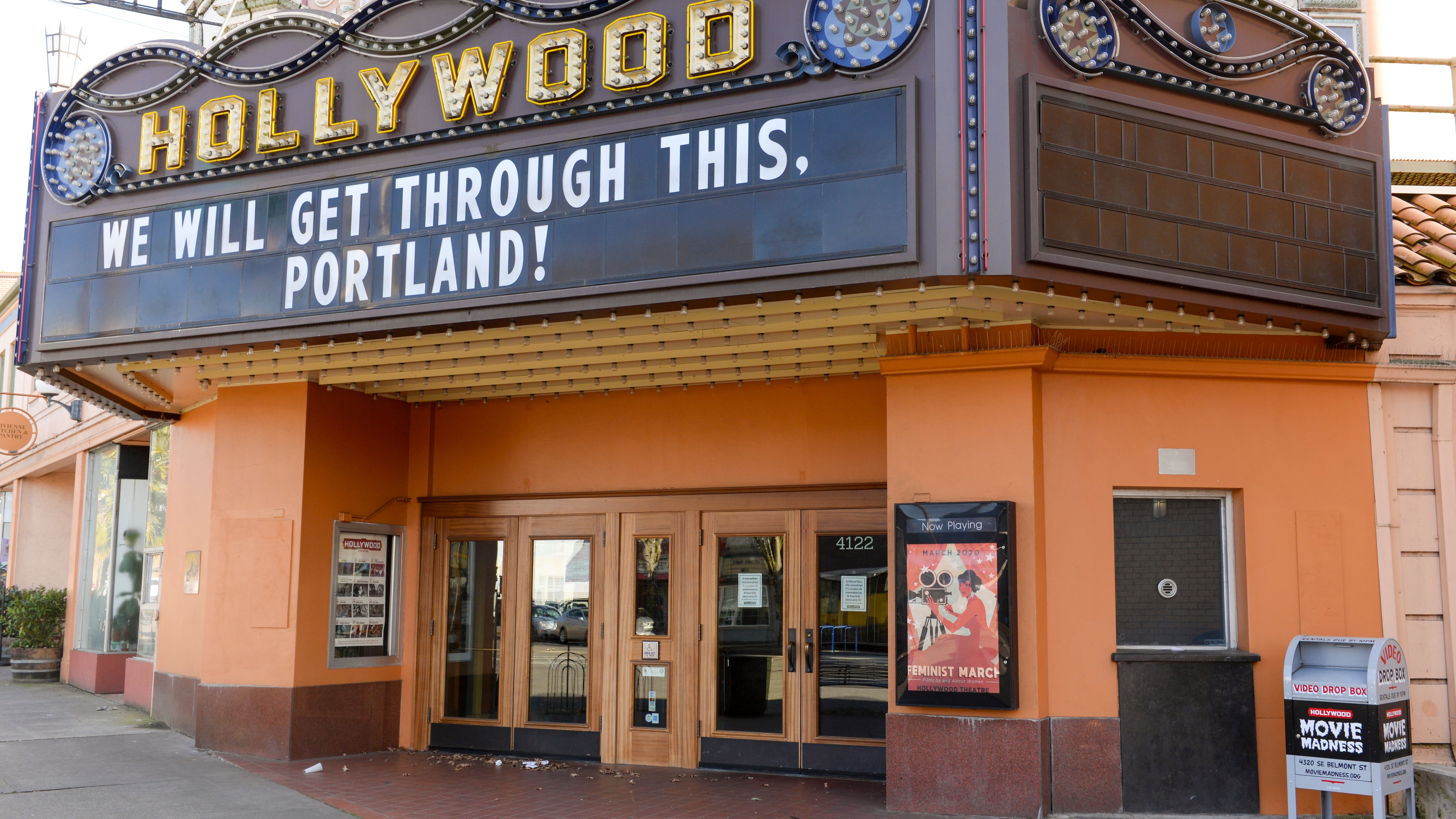As if movie theaters weren’t imperiled enough by a virus spread most quickly among enclosed crowds, the exhibition industry returns this spring facing the same old questions of survival, plus a few new ones.
Still, morale among Portland theater operators is high. Cinema 21, the Living Room Theaters, Clinton Street Theater and Cinemagic are all tearing tickets again for limited-capacity audiences. The Hollywood Theatre has announced a July 2 comeback. Regal Cinemas began reopening locations in late April and, judging by the box office returns, did booming business over Memorial Day weekend with A Quiet Place Part II. Cautious optimism abounds, not to mention some sea legs.
“It often feels like we are starting a new business,” says Laurelhurst Theater owner Prescott Allen, whose East Burnside Street and Northeast 28th Avenue venue is targeting a June 11 return, after a year of remodeling and HVAC updates.
The sensation of starting fresh is common all over town, although leading up to this spring, reopening strategies varied. On the one hand, Cinema 21 and Living Room have ping-ponged right along with Oregon’s shifting COVID regulations since last fall—launching private rentals, ceasing them, reopening, closing again, opening again. Other Portland venues, like Laurelhurst, the Academy and Roseway theaters, closed in March 2020 and stayed that way.
“Part of the complexity of wrestling with this business over the last 14 months has been holding two opposing ideas at the same time,” says Cinema 21 manager Erik McClanahan on balancing safety with ambition. “The thing I’ve come to appreciate the most is that [reopening] does need to happen at some point. In some ways, it’s about giving confidence to the distributors.”
Speaking of, after a 15-month hibernation (total or relative), Portland screens are flickering awake to an altered studio landscape. While releasing titles simultaneously into theaters and on streaming platforms (“day-and-date,” in industry speak) had grown increasingly prevalent during the past five years, that approach has never touched so many mainstream movies as now. With Warner Brothers making its entire 2021 slate available on HBO Max same day, Disney+ concurrently offering PVOD options, and Amazon buying MGM, what do day-and-date practices becoming an industry standard mean for Portland theaters?
“I never saw [day-and-date] as an existential threat,” says Cinemagic and Moreland Theater manager Nicholas Kuechler about the practice pre-pandemic. “I thought it would take a bigger chunk out of us than it did.”
Many local independent theaters count on their spaces holding more sway with audiences than theatrical exclusivity windows. Kuechler points out how much of Cinemagic’s Hawthorne neighborhood clientele works in the service industry—apartment dwellers, he infers, often with small TVs. Packing into Cinemagic, cranking the volume, and vibing so hard with a movie that their beer sloshes is half the appeal.
“The idea of watching Godzilla vs. Kong on my 30-inch TV just sounds wrong,” he adds. “There are some movies [where] you just want that size. They were built for it.”
What Kuechler did notice when Warner Brothers’ latest Godzilla blockbuster played at Southeast Milwaukie Avenue’s Moreland Theater in April is that surprisingly strong crowds tapered dramatically in the weeks after opening. That observation squares with McClanahan’s personal view of film exhibition’s present and future: Plugged-in movie lovers flock to theatrical openings (regardless of streaming availability) and generate enthusiasm, and then the film slips toward its eternal online resting place with some genuine buzz.
“We’re propping [films] up for their eventual life on VOD or streaming,” McClanahan says. “A theater like [Cinema 21] becomes a version of the film festival ecosystem; you want people who love movies the most to come see stuff that needs any help it can to be found.”
In this version of events, theaters book more titles at quicker clips for shorter durations. Luckily, cities don’t change as quickly as media strategies.
As Kuechler puts it, even if Cinemagic or the Moreland screens Marvel’s Black Widow this July, the theaters aren’t beholden to the same pressures of being “everything to everyone” as the global blockbusters sometimes on their screens. Knowing their lane can be not only a boon to theaters on the comeback but a relief. Serve and trust the neighborhood crowd and Kuechler believes moviegoing just might feel normal again this summer.
“You’re not going to make a lot of money that way,” he says, “but it’s much more enjoyable.

